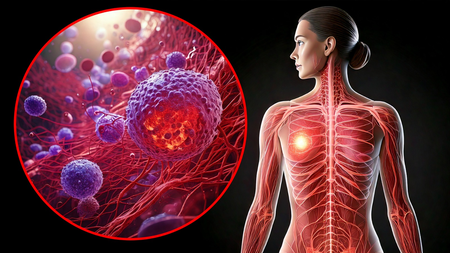
New Delhi, April 11 (IANS) Diet plays a key role in managing Parkinson’s disease, as it can raise the risk of weight loss and malnutrition, said experts on World Parkinson’s Day on Thursday.
World Parkinson’s Day is observed every year on April 11 to raise awareness about the neurological condition that leads to progressive impairment of motor functions and includes tremors, painful muscle contractions, and difficulty in speaking, eating, and sleeping.
While there is no superfood, eating a well-balanced diet with plenty of whole foods, such as fruits and vegetables, lean protein, beans and legumes, and whole grains, with adequate hydration, not only boosts general well-being but also improves patients’ ability to deal with symptoms of the disease.
“Parkinson’s disease is defined as a neurodegenerative disorder that impacts the quality of life and decreases nutritional status. Nutrition may modify the risk factors but there is no preventive curative therapy as per studies. No single nutrient acts like a superfood but it is a combination of functional foods and dietary patterns that impacts the risk of disease,” Sweedal Trinidade, Chief Dietician, P. D. Hinduja Hospital & MRC, Mahim, told IANS.
“Regular monitoring of nutritional status is vital for individuals with Parkinson’s disease as poor nutrition can significantly impact their health outcomes. Parkinson’s patients often experience significant weight loss, increasing the risk of malnutrition and exacerbating disease severity. Therefore, it’s essential to maintain a balanced diet, consume meals at shorter intervals, and ensure adequate hydration,” added Charu Dua, Chief Clinical Nutritionist, at Amrita Hospital, Faridabad.
The experts noted that incorporating healthy fats and spreading out protein intake throughout the day can optimise medication effectiveness and support muscle health.
Sweedal emphasised the need to consume an antioxidant-rich diet — known to reduce the pace of the ageing process — to get a neuroprotective effect.
“A diet rich in fruits and vegetables provides us with an adequate dose of antioxidants, such as vitamins A, B, C, and E that are known to decrease metabolic failure in antioxidant mechanisms that may increase chemical processes that can lead to lipid peroxidation and parkinsonian characteristics,” she said.
She recommended eating fresh fruits and vegetables rich in lycopene, beta carotenoids, riboflavin, tomatoes, potatoes, peppers, cauliflower, cabbage, and broccoli but warned against dairy products.
“Studies have shown that high consumption of dairy products may often result in low serum uric acid levels. Serum uric acid is inversely proportional to the risk of Parkinson’s. However, more evidence is needed to support the same in men and women,” Sweedal said.
Meanwhile, Charu stressed a high-fibre diet that can help prevent constipation — a common issue in Parkinson’s patients.
“Including flavonoids from sources like soy, known for their osteogenic effects, may offer neuroprotective benefits. Likewise, polyphenol-rich foods such as berries, nuts, broccoli, and olive oil possess antioxidant properties that can potentially protect against neurodegeneration,” the expert said.
–IANS
rvt/svn




